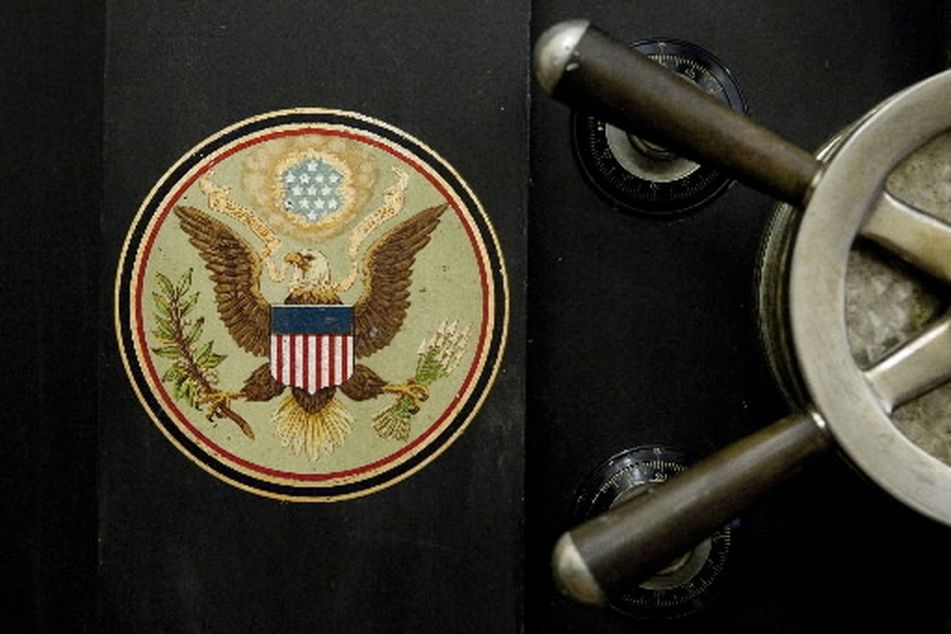Treasury 6-month bill drops to record low as debt limit looms

Six-month bill rates declined to a record low as the Treasury reduces sales of short-term securities while the Obama administration and Congress wrangle over budget cuts and raising the U.S. debt limit.
Six-month bill rates declined to a record low as the Treasury reduces sales of short-term securities while the Obama administration and Congress wrangle over budget cuts and raising the U.S. debt limit.
The rate dropped as low as three basis points, or 0.03% to 0.1099% in New York. The prior record low of 0.1109% was set in November 2009. Treasury also auctioned three- and six-month bills today at the lowest rates since January 2010.
The U.S. will reach its legal debt limit no later than May 16 unless Congress acts before then, and emergency measures may provide extra borrowing room to last only until about July 8, Treasury Secretary Timothy F. Geithner said today. Since February, the Treasury has cut by $195 billion the amount of outstanding Supplementary Financing Program bills, or SFPs, it sells on behalf of the Federal Reserve in a program set up in 2008 amid efforts to prop up the financial system.
“It’s created a log-jam at the front end of the yield curve,” said Ward McCarthy, chief financial economist at Jefferies & Co. Inc. in New York, one of the 20 primary dealers that trade with the Fed. “It exacerbated what was already a bit of a collateral squeeze at the front end.”
The Federal Deposit Insurance Corp. adjustment of insurance fees, effective April 1, to broaden the base to banks’ liabilities rather than domestic deposits has also increased demand for bills, McCarthy said.
‘House of Pain’
Democratic and Republican leaders are negotiating a proposal to slash $33 billion in 2011 spending and keep the government operating through September. Congress must agree on spending for this fiscal year or risk a government shutdown when current spending authority ends April 8.
Yields on bills have lingered near historic lows since the Fed reduced its target rate for overnight loans between banks to a record low range of zero and 0.25% in December 2008 as part of the efforts to lift the economy from recession. The Fed is also buying $600 billion in Treasuries to help spur growth and reintroduce inflation after prices of assets such as housing and commercial real estate collapsed.
“The money market has become an ever-worsening house of pain, owing to the Federal Reserve’s merciless effort to create an investment climate so punishing that it drives investors to seek refuge in other assets,” Anthony Crescenzi, a portfolio manager and strategist at Newport Beach, Calif.-based Pacific Investment Management Co., wrote in a note today. “This will no doubt continue the exodus by investors from the money market realm.”
Government Shutdown
The Treasury auctioned $32 billion of three-month bills today at a rate of 0.05% and $30 billion of six-month bills at 0.13%. The rates at both sales were the lowest since Jan. 11, 2010.
The reduction in the SFP has made Treasury bills more expensive in both regular trading and the repurchase-agreement, or repo, market. The program has $5 billion of notes still outstanding.
The FDIC intends to shifting the burden for depositor protection to larger lenders whose reliance on riskier funding may pose greater threats to the financial system.
–Bloomberg News–
Learn more about reprints and licensing for this article.







